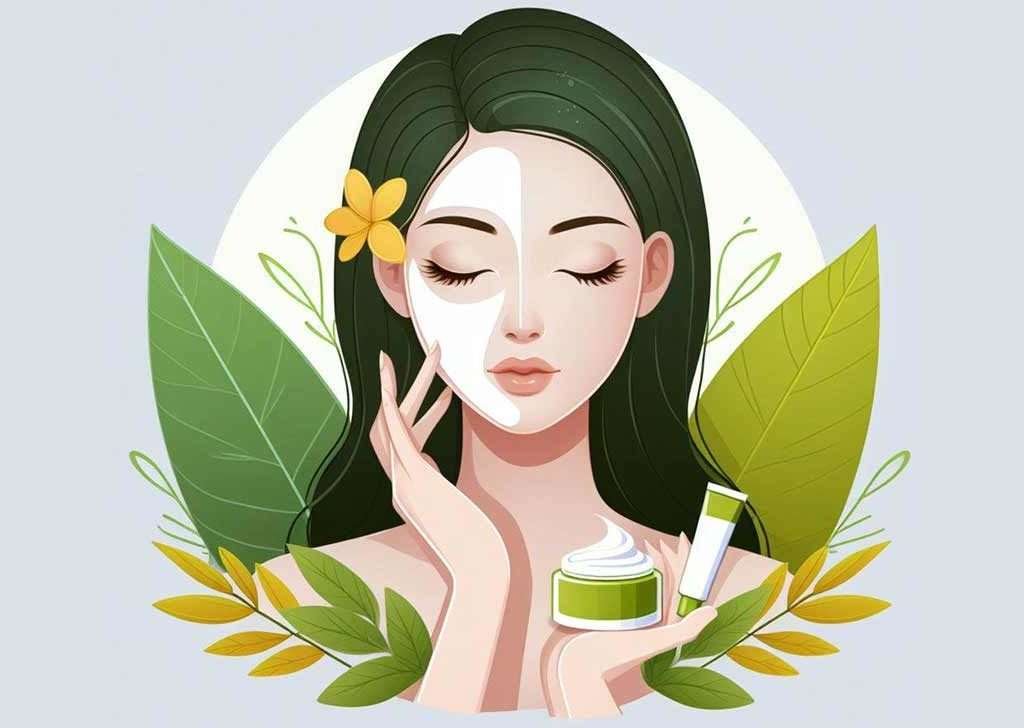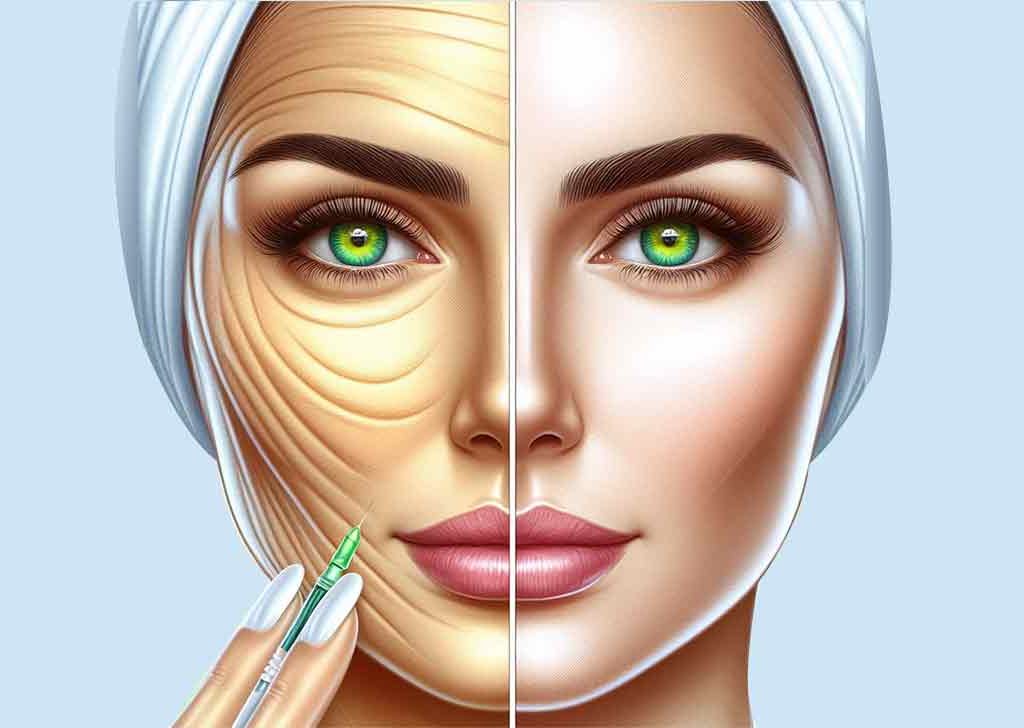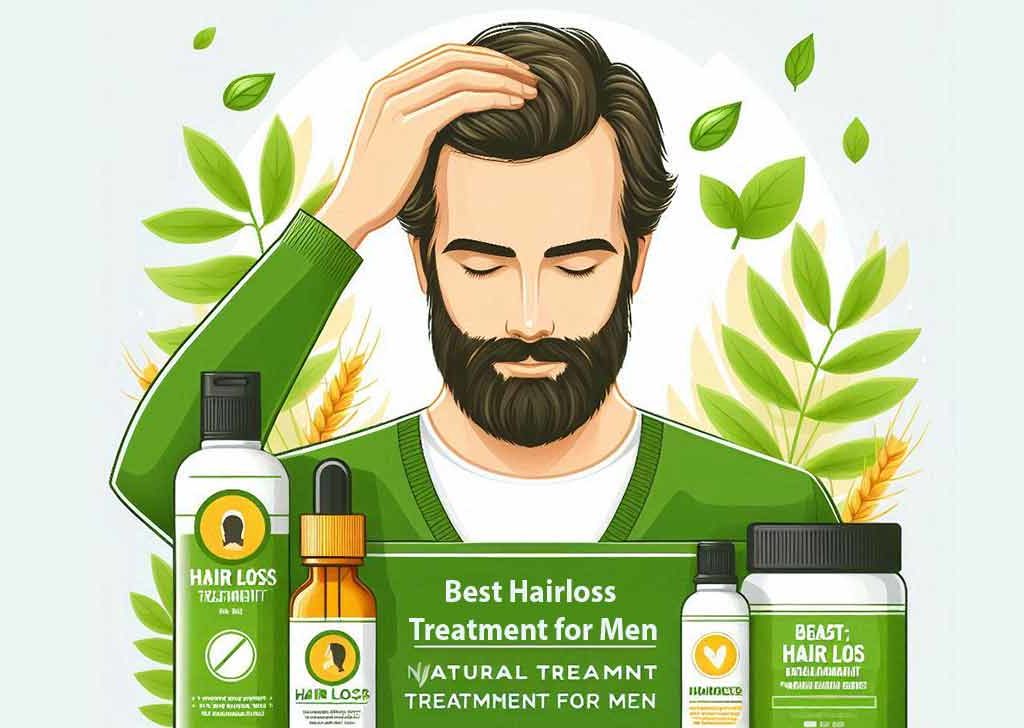Blackhead Removal Products
1: Cleansers
- Attributes:
- Salicylic Acid-based
- Gentle exfoliation
- Oil control
- Deep pore cleansing
2: Masks
- Attributes:
- Charcoal-infused
- Clay-based
- Detoxifying properties
- Tightens pores
3: Exfoliators
- Attributes:
- Physical scrubs
- Chemical exfoliants
- Glycolic acid or AHA-based
- Dead skin cell removal
4: Pore Strips
- Attributes:
- Adhesive-based
- Instant removal
- Quick use
- Targets nose area
5: Blackhead Removal Tools
- Attributes:
- Stainless steel
- Precision-based
- Minimizes skin damage
- Dermatologist-recommended
6: Serums
- Attributes:
- Retinol-based
- Shrinks pores
- Regulates sebum production
- Prevents future breakouts
7: Blackhead Removal Gels
- Attributes:
- Cooling sensation
- Oil-free formula
- Water-based
- Easy application
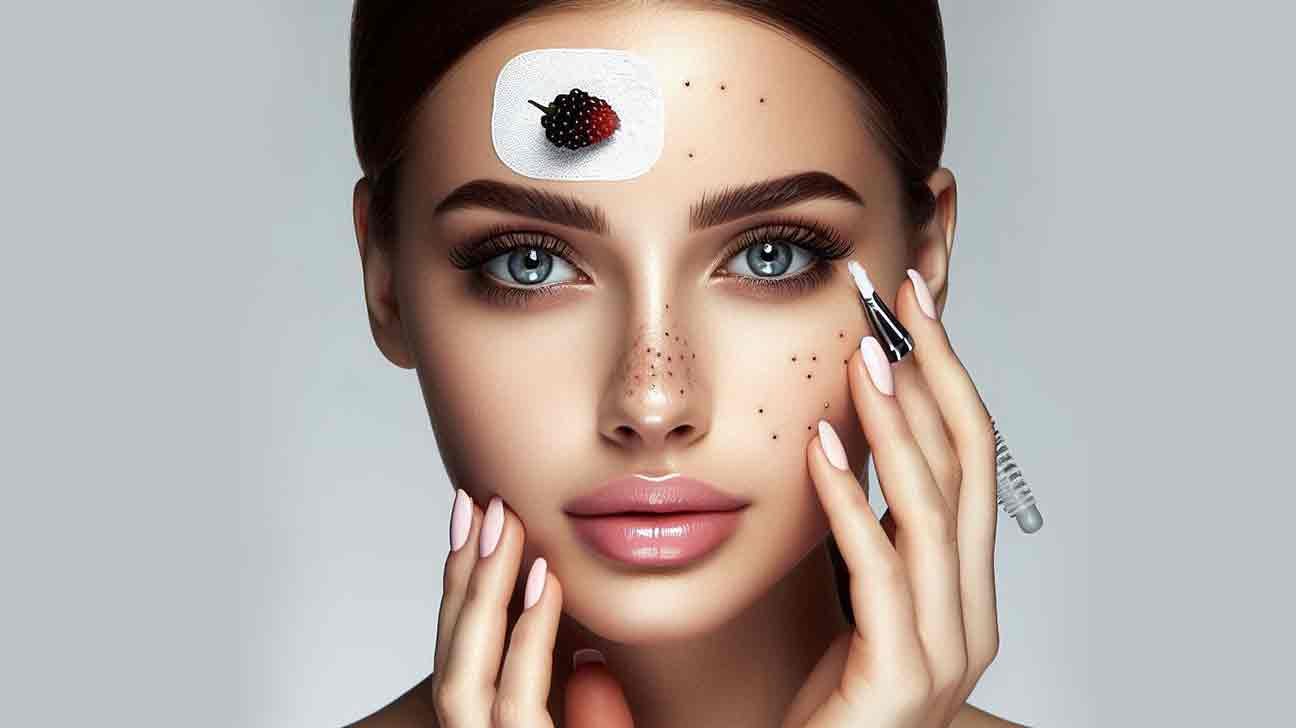
Blackhead removal involves clearing clogged pores to improve skin appearance. Effective methods include cleansing, exfoliation, and professional treatments.
Blackheads are a common skin issue caused by clogged hair follicles. They appear as small, dark spots on the skin, often on the nose and chin. Proper blackhead removal is essential for clear and healthy skin. Regular cleansing and exfoliation help prevent blackheads by removing dead skin cells and excess oil.
For stubborn blackheads, professional treatments like chemical peels or extractions may be necessary. Using non-comedogenic skincare products can also reduce blackhead formation. Consistent skincare routines and the right products keep your skin clear and prevent future blackheads.
Blackhead Removal
Causes Of Blackheads
Blackheads can be a nuisance and affect many people. Understanding the causes can help in managing and preventing them. Let’s dive into the common triggers and the role of pores in blackhead formation.
Common Triggers
There are several common triggers for blackheads. These include excess oil production, dead skin cells, and hormonal changes.
- Excess Oil Production: The skin produces oil to stay hydrated. Too much oil can block pores, leading to blackheads.
- Dead Skin Cells: Dead skin cells can accumulate and mix with oil. This mixture clogs pores, forming blackheads.
- Hormonal Changes: Hormones can increase oil production. This often happens during puberty, menstruation, or pregnancy.
Role Of Pores
Pores play a crucial role in blackhead formation. Pores are tiny openings on your skin’s surface. They release sweat and oil.
When pores get clogged, blackheads form. Clogged pores trap oil, dead skin cells, and bacteria. This combination creates blackheads.
| Factors | Impact on Pores |
|---|---|
| Oil Production | Excess oil blocks pores |
| Dead Skin Cells | Accumulate in pores |
| Bacteria | Causes inflammation |
Maintaining clean and open pores is essential. Use gentle cleansers to remove excess oil and dead skin cells. This reduces the risk of blackheads.
Daily Skincare Routine
Maintaining a daily skincare routine is crucial for blackhead removal. Consistency in your regimen helps keep your skin clear and healthy. Here, we will discuss key steps to include in your routine.
Cleansing Tips
Cleansing your face twice a day is essential. Use a gentle cleanser suited for your skin type. Avoid harsh soaps that can strip your skin of its natural oils. Always remove makeup before bed to prevent clogged pores. Use lukewarm water to wash your face, as hot water can irritate your skin.
Exfoliation Advice
Exfoliation is a critical step in your skincare routine. It helps remove dead skin cells and unclog pores. Use a mild exfoliant 2-3 times a week. Avoid over-exfoliating, which can damage your skin. Choose products with salicylic acid or glycolic acid for effective results. Always follow up with a moisturizer to keep your skin hydrated.
| Step | Frequency | Product Type |
|---|---|---|
| Cleansing | Twice Daily | Gentle Cleanser |
| Exfoliation | 2-3 Times Weekly | Mild Exfoliant |
- Remove makeup before bed.
- Use lukewarm water for washing.
- Choose products with salicylic or glycolic acid.
- Cleanse your face twice a day.
- Exfoliate 2-3 times a week.
- Hydrate your skin after exfoliation.
Effective Ingredients
Blackheads can be stubborn and annoying. To tackle them effectively, specific ingredients work best. Understanding these ingredients can help you choose the right products for clear skin.
Salicylic Acid
Salicylic acid is a popular ingredient for treating blackheads. It is a type of beta hydroxy acid (BHA). This acid penetrates deep into the pores. It helps to dissolve the debris that clogs pores. This reduces the formation of blackheads.
Here are some benefits of salicylic acid:
- Unclogs pores
- Reduces inflammation
- Exfoliates the skin
Salicylic acid is found in many over-the-counter products. These include cleansers, toners, and spot treatments. It is gentle enough for most skin types.
Benzoyl Peroxide
Benzoyl peroxide is another effective ingredient for blackhead removal. It works by killing bacteria on the skin. This helps to reduce acne and prevent blackheads.
Benzoyl peroxide also helps to remove excess oil. Here are the key benefits:
- Kills acne-causing bacteria
- Reduces oil production
- Clears dead skin cells
Benzoyl peroxide is available in various strengths. You can find it in creams, gels, and face washes. Start with a lower concentration to avoid skin irritation.
Using these ingredients can significantly improve your skin. Choose the right products and use them regularly for the best results.
Diy Blackhead Removal
Blackheads can be a persistent problem. Many people turn to DIY blackhead removal solutions. These methods can be effective and cost-saving. Below, we explore some tried and tested home remedies. Also, we discuss necessary precautions to ensure safe and effective removal.
Home Remedies
Home remedies for blackhead removal are both simple and effective. Here are a few popular methods:
- Baking Soda Scrub: Mix baking soda with water to form a paste. Gently scrub your face with this paste. Rinse off with warm water.
- Lemon Juice: Apply fresh lemon juice to your blackheads. Leave it on for 10 minutes. Rinse off with cold water.
- Honey Mask: Apply raw honey to your blackheads. Leave it on for 15 minutes. Rinse off with warm water.
These methods help to cleanse and exfoliate the skin. They can reduce the appearance of blackheads over time.
Precautions
While DIY blackhead removal can be effective, it is important to take some precautions:
- Patch Test: Always do a patch test before applying any remedy to your face. This helps to ensure you do not have an allergic reaction.
- Gentle Application: Be gentle when applying scrubs and masks. Harsh rubbing can irritate the skin.
- Clean Tools: Ensure any tools you use are clean. This helps to prevent any bacterial infection.
Following these precautions can help you achieve the best results. They also ensure your skin remains healthy and free from irritation.
Professional Treatments
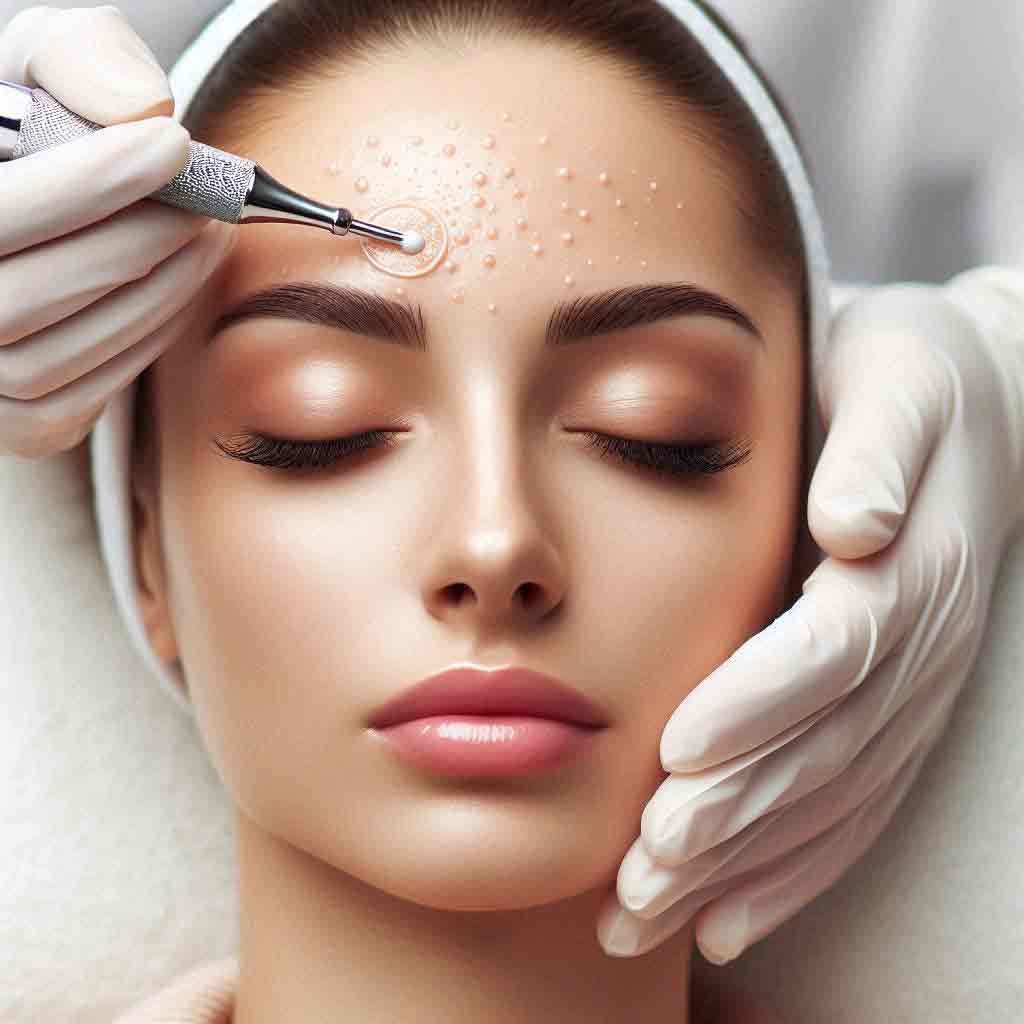
Blackhead removal can be tricky. Professional treatments offer effective solutions. Experts ensure safe and clean procedures. Let’s explore two popular options: Dermatologist Services and Spa Facials.
Dermatologist Services
Dermatologists are skin experts. They provide advanced blackhead removal treatments. Their methods are safe and efficient. Common procedures include:
- Microdermabrasion: This removes dead skin and unclogs pores.
- Chemical Peels: These use acids to exfoliate and clear blackheads.
- Laser Therapy: This targets and reduces blackheads using light.
A visit to a dermatologist ensures proper care. They customize treatments based on skin type. This reduces the risk of infection and scarring. Dermatologist treatments are ideal for stubborn blackheads.
Spa Facials
Spas offer relaxing facial treatments. Spa facials cleanse and rejuvenate the skin. They help in blackhead removal. Common spa facial treatments include:
- Deep Cleansing Facials: These use steam and extraction techniques.
- HydraFacials: This involves hydration and mild exfoliation.
- Enzyme Facials: Natural enzymes break down dead skin cells.
Spa facials provide a soothing experience. They improve skin texture and appearance. Regular facials keep blackheads at bay. Spas also offer personalized skin care advice. This helps maintain long-term skin health.
Tools And Devices
Removing blackheads effectively requires the right tools and devices. These help clear clogged pores and leave your skin clean. Below, we explore some popular options for blackhead removal.
Extraction Tools
Extraction tools are metal instruments designed to remove blackheads. They often have looped ends for easy extraction.
- Comedone Extractors: These have a small, rounded loop. Place the loop over the blackhead and press gently.
- Blackhead Tweezers: These have pointed tips. Squeeze gently to pull out blackheads.
- Needle Extractors: These have a sharp end. Use the needle to prick the blackhead and then extract it.
Ensure the tools are sterilized before use. This prevents infections and keeps your skin safe.
Pore Strips
Pore strips are adhesive strips. They help remove blackheads from the nose and chin areas.
- Cleanse Your Face: Wash your face with a gentle cleanser. This removes dirt and oil.
- Apply the Strip: Wet your nose and apply the strip. Press down to ensure it sticks well.
- Wait and Peel: Wait for 10-15 minutes. Slowly peel off the strip from the edges.
Pore strips are convenient and quick. They can be used once a week for best results.
| Tool/Device | Best For | Frequency |
|---|---|---|
| Comedone Extractors | Individual Blackheads | Weekly |
| Blackhead Tweezers | Stubborn Blackheads | As Needed |
| Pore Strips | Nose and Chin | Weekly |
Prevention Tips
Preventing blackheads is easier than treating them. By adopting good habits, you can keep your skin clear and healthy. Let’s explore some effective prevention tips.
Diet And Lifestyle
What you eat affects your skin. A diet rich in fruits and vegetables can help. Avoid oily and sugary foods. Drink plenty of water to keep your skin hydrated. Regular exercise improves blood flow and helps remove toxins from your body. Good sleep is also crucial. Aim for at least 7-8 hours each night. Stress can cause skin issues. Practice relaxation techniques like yoga or meditation.
Skincare Products
Choose the right skincare products. Use a gentle cleanser twice a day. Avoid harsh scrubs that can irritate your skin. Non-comedogenic products are best. These do not clog your pores. Look for products with salicylic acid or benzoyl peroxide. These ingredients help to clear pores. Do not forget to moisturize. Even oily skin needs hydration. Use an oil-free moisturizer. Sunscreen is essential. Choose one that is non-comedogenic.
| Product Type | Recommended Ingredients |
|---|---|
| Cleanser | Salicylic Acid |
| Moisturizer | Oil-Free |
| Sunscreen | Non-Comedogenic |
- Use a gentle cleanser twice daily.
- Avoid products that irritate the skin.
- Opt for non-comedogenic skincare items.
Common Mistakes
Blackhead removal can be tricky. Many people make common mistakes that worsen their skin. Avoiding these mistakes can help you achieve clearer skin.
Over-exfoliation
Over-exfoliation is a big mistake. Exfoliating too much can damage your skin. Your skin needs time to heal after exfoliation. Overdoing it can cause redness and irritation.
Exfoliate only 2-3 times a week. Use gentle products to avoid harming your skin. Too much exfoliation strips the skin of its natural oils. This can lead to dryness and more blackheads.
Improper Extraction
Improper extraction is another common mistake. Squeezing blackheads with your fingers can cause scarring. It can also push dirt deeper into your pores.
Use proper tools for blackhead removal. Sterilize tools before and after use. Apply gentle pressure to avoid skin damage. Improper extraction can lead to infections and more blackheads.
Consider visiting a dermatologist for professional extraction. They use safe methods to clear your skin. Avoid DIY methods that can harm your skin.
| Common Mistake | Why It’s Harmful | Better Practice |
|---|---|---|
| Over-Exfoliation | Damages skin, causes irritation | Exfoliate 2-3 times a week |
| Improper Extraction | Causes scarring, infections | Use proper tools, visit a dermatologist |
Avoid these common mistakes to keep your skin clear. Proper care is key to effective blackhead removal.
Sensitive Skin Care
Sensitive skin needs special care during blackhead removal. Using the wrong products can cause irritation. Choose products that are gentle and safe for sensitive skin types.
Gentle Products
For sensitive skin, use gentle products. Harsh chemicals can cause redness and irritation.
Look for products with natural ingredients. Here are some suggestions:
- Aloe Vera: Soothes and calms the skin.
- Chamomile: Reduces inflammation and redness.
- Green Tea: Contains antioxidants that protect the skin.
Avoid products with alcohol or strong fragrances. They can dry out your skin.
Avoiding Irritants
Avoiding irritants is crucial for sensitive skin care. Some common irritants to avoid:
| Common Irritants | Why Avoid |
|---|---|
| Alcohol-based products | They dry out the skin. |
| Strong fragrances | Can cause allergic reactions. |
| Harsh scrubs | May damage sensitive skin. |
Instead of harsh scrubs, use a soft cloth. Gently cleanse your face with it.
Always patch-test new products. Apply a small amount on your wrist first.
Myths Vs Facts
Understanding blackhead removal is essential for clear skin. There are many myths and facts about blackhead removal. Let’s explore some common misconceptions and scientific evidence.
Common Misconceptions
People believe many myths about blackheads. It’s important to know the truth.
- Myth: Blackheads are caused by dirt.
- Fact: Blackheads form due to clogged pores with oil and dead skin.
- Myth: Scrubbing hard removes blackheads.
- Fact: Scrubbing too hard irritates the skin and causes more blackheads.
- Myth: Only people with oily skin get blackheads.
- Fact: People with all skin types can get blackheads.
Scientific Evidence
Scientists have studied blackheads and their removal methods. Here are some findings:
| Method | Effectiveness |
|---|---|
| Salicylic Acid | Removes dead skin cells and unclogs pores. |
| Retinoids | Reduce oil production and prevent clogged pores. |
| Clay Masks | Absorb excess oil and clear pores. |
These methods are backed by scientific research. They help effectively remove and prevent blackheads.
Knowing the facts helps you take better care of your skin. Don’t believe the myths. Trust the science for clear and healthy skin.
Seasonal Skincare
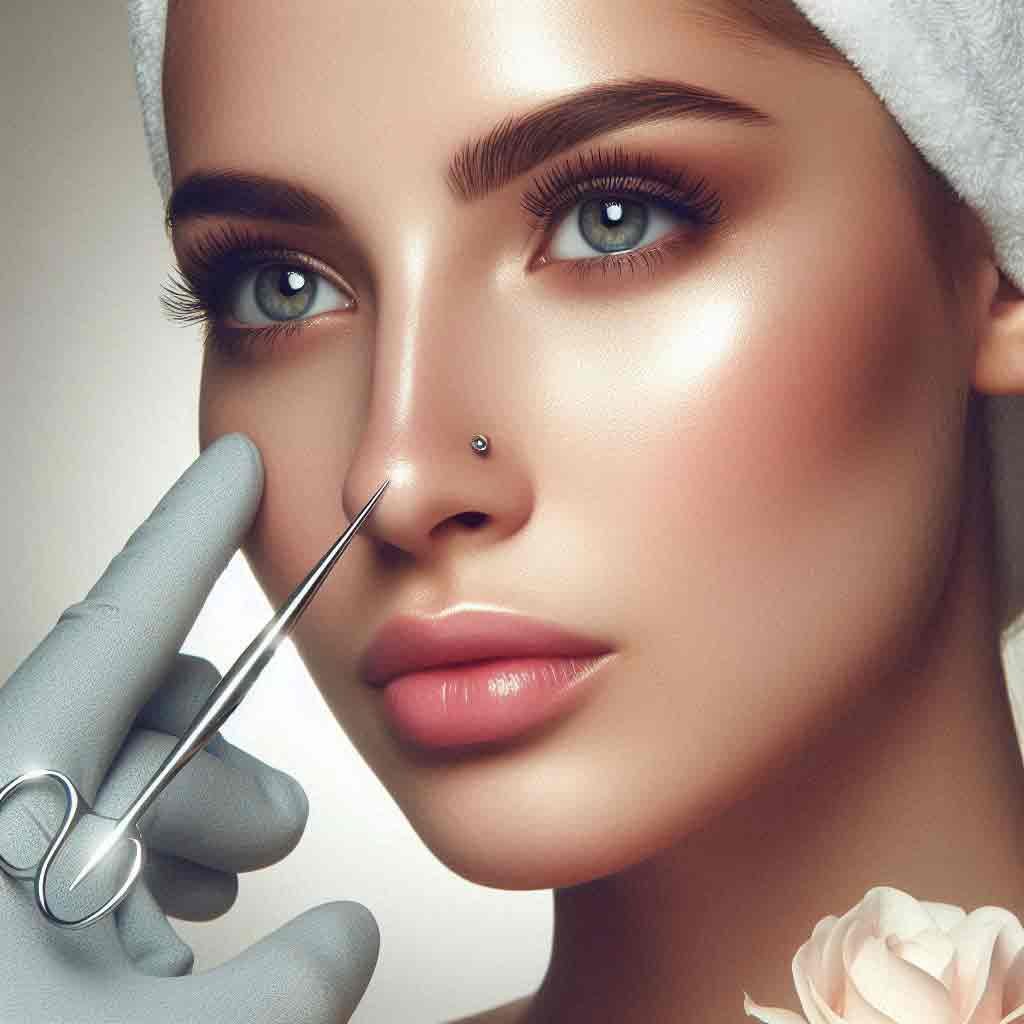
Seasonal changes can affect your skin in many ways. Understanding how to adjust your skincare routine can help you maintain clear and healthy skin. Blackhead removal is a key part of seasonal skincare. Below, we will discuss how to adapt your routine for both summer and winter.
Summer Routine
Summer heat can lead to more oil production. This can cause blackheads. Follow these steps to keep your skin clear:
- Cleanse twice daily: Use a gentle cleanser to remove excess oil.
- Exfoliate regularly: Use a chemical exfoliant like salicylic acid.
- Use oil-free products: Choose non-comedogenic products to avoid clogging pores.
- Apply sunscreen: Opt for a lightweight, non-greasy formula.
Staying hydrated also helps to keep your skin in balance during the hot months.
Winter Routine
Cold weather can dry out your skin. This can also lead to blackheads. Follow these steps for winter skincare:
- Moisturize daily: Use a hydrating moisturizer to combat dryness.
- Gentle cleansing: Choose a mild cleanser that won’t strip your skin of oils.
- Hydrating masks: Apply a hydrating mask once a week.
- Use a humidifier: This helps keep the air and your skin moist.
Adjusting your routine for the cold weather helps keep your skin healthy and blackhead-free.
Hydration Importance
Proper hydration is crucial for healthy and clear skin. Many people focus on external treatments but overlook the importance of internal hydration. Drinking water and using moisturizers can significantly impact your skin’s health and help remove blackheads.
Water Intake
Drinking enough water is essential for skin hydration. Water helps flush toxins from the body, reducing the chance of blackheads. Aim to drink at least 8 glasses of water daily. Staying hydrated keeps your skin cells healthy and plump.
- Boosts skin elasticity: Proper hydration maintains skin elasticity, preventing clogged pores.
- Flushes toxins: Water helps eliminate toxins that can cause blackheads.
- Improves blood flow: Better circulation means better nutrient delivery to skin cells.
Moisturizers
Using a good moisturizer keeps your skin hydrated. Even oily skin needs moisture. Choose non-comedogenic moisturizers to avoid clogging pores. Lightweight, water-based moisturizers are ideal for oily skin.
| Skin Type | Recommended Moisturizer |
|---|---|
| Oily Skin | Water-based, non-comedogenic |
| Dry Skin | Thicker, oil-based |
- Apply moisturizer after cleansing and toning your skin.
- Use a small amount to avoid overloading the skin.
- Massage gently for better absorption.
Regular use of moisturizers can help reduce blackheads by keeping skin balanced and healthy.
Makeup And Blackheads
Makeup can be a double-edged sword. It enhances your beauty but might also clog your pores. This could lead to the formation of blackheads. Understanding the right makeup products and techniques is crucial for clear skin.
Non-comedogenic Products
Using non-comedogenic products can help prevent blackheads. These products are specially formulated to not clog pores.
- Look for labels that say “non-comedogenic.”
- Avoid heavy, oil-based foundations.
- Choose water-based or mineral makeup.
Here is a quick comparison:
| Type of Product | Comedogenic Rating |
|---|---|
| Oil-Based Foundation | High |
| Water-Based Foundation | Low |
| Mineral Makeup | Low |
Proper Removal
Proper makeup removal is essential to avoid blackheads. Leaving makeup on overnight can clog pores.
- Use a gentle makeup remover.
- Follow with a facial cleanser.
- Finish with a toner to clear any residue.
Consider using oil-free makeup removers. They are less likely to block pores. Always cleanse your face before sleeping.
Stress And Skin
Stress can do more than make you feel anxious. It can also affect your skin. Stress can lead to blackheads and other skin issues. Let’s explore how stress impacts your skin and what you can do about it.
Stress Management
Managing stress is crucial for healthy skin. Here are some tips:
- Exercise: Physical activity reduces stress.
- Meditation: Calms your mind and improves skin health.
- Sleep: Good sleep helps your skin recover.
- Diet: Eat healthy foods to reduce stress.
Impact On Skin
Stress can cause various skin problems:
- Blackheads: Stress increases oil production.
- Acne: More oil leads to more pimples.
- Dry Skin: Stress can make your skin dry.
- Rashes: You might get itchy skin due to stress.
To help your skin, follow these simple steps:
- Wash your face twice a day.
- Use a gentle cleanser.
- Exfoliate weekly to remove dead skin.
- Stay hydrated by drinking water.
| Problem | Cause |
|---|---|
| Blackheads | Excess oil production |
| Acne | Clogged pores |
| Dry Skin | Lack of moisture |
| Rashes | Skin irritation |
Hormonal Influences
Hormones play a big role in blackhead formation. They affect oil glands in the skin. This results in more oil production, which clogs pores. Understanding how hormones impact the skin can help manage blackheads better.
Teenage Skin
During teenage years, hormones surge. This causes increased oil production. The oil, or sebum, mixes with dead skin cells. This mixture clogs pores, forming blackheads. Teenagers often experience blackheads on the nose, forehead, and chin.
Here are some tips to help teenagers manage blackheads:
- Cleanse the face twice daily with a gentle cleanser.
- Use oil-free products.
- Exfoliate once a week to remove dead skin cells.
- Avoid touching the face with dirty hands.
Adult Acne
Adults can also suffer from blackheads. Hormonal changes during periods, pregnancy, or menopause can trigger them. Stress also affects hormone levels, leading to more blackheads.
Here are some tips for adults to manage blackheads:
- Use non-comedogenic skincare products.
- Incorporate a retinoid into your skincare routine.
- Maintain a healthy diet to balance hormone levels.
- Manage stress through yoga or meditation.
Both teenagers and adults can benefit from understanding hormonal influences on their skin. By following these tips, managing blackheads becomes easier.
| Age Group | Hormonal Triggers | Tips |
|---|---|---|
| Teenagers | Puberty | Gentle cleansing, oil-free products, weekly exfoliation |
| Adults | Periods, Pregnancy, Menopause, Stress | Non-comedogenic products, retinoids, healthy diet, stress management |
Sun Protection
Sun protection plays a vital role in blackhead removal. The sun can cause significant damage to your skin, leading to more blackheads. Understanding the importance of sun protection helps keep your skin clear and healthy.
Sunscreen Use
Using sunscreen daily is essential. Sunscreen shields your skin from harmful UV rays. Choose a sunscreen with at least SPF 30. Apply it generously on your face and exposed areas.
Reapply sunscreen every two hours. Especially if you sweat or swim. Sunscreen not only protects your skin but also prevents blackheads.
Uv Damage
UV rays can damage skin cells. This leads to clogged pores and blackheads. UV damage causes skin inflammation and excess oil production.
Protecting your skin from UV rays reduces the risk of blackheads. Wear hats and sunglasses for extra protection. Avoid the sun during peak hours, 10 AM to 4 PM.
| Protection Method | Benefit |
|---|---|
| Sunscreen | Shields against UV rays |
| Hats | Provides shade for your face |
| Sunglasses | Protects your eyes and surrounding skin |
| Avoid Peak Hours | Less UV exposure |
Using these methods ensures your skin stays protected. Healthy skin is less likely to develop blackheads.
Consulting A Dermatologist
Blackhead removal can be tricky. Consulting a dermatologist might be your best option. A professional can offer tailored advice and treatments. This section delves into when you should seek help and what to expect during your visit.
When To Seek Help
Not all blackheads need a dermatologist. But some cases do. Here are some signs:
- Persistent blackheads despite over-the-counter treatments.
- Inflamed or painful blackheads causing discomfort.
- Scarring or skin damage from previous blackhead removal attempts.
- Unusual blackheads that look different from typical ones.
These signs indicate a deeper issue. A dermatologist can provide a professional solution.
What To Expect
During your visit, the dermatologist will assess your skin. They might ask about your skincare routine. This helps them understand your skin’s needs.
Here’s a table summarizing common procedures:
| Procedure | Description | Benefits |
|---|---|---|
| Extraction | Manual removal of blackheads | Immediate results |
| Chemical Peels | Application of acid to exfoliate skin | Reduces blackheads and improves skin texture |
| Laser Therapy | Use of laser to treat blackheads | Targets deeper skin layers |
These treatments are more effective than DIY methods. They also reduce the risk of scarring. Consulting a dermatologist ensures safe and effective blackhead removal.
Long-term Skincare
Maintaining clear skin isn’t just about one-time blackhead removal. Long-term skincare involves consistent routines and adapting to your skin’s needs. This approach helps prevent blackheads and ensures healthy skin.
Consistency Importance
Consistency is key to a successful skincare routine. Daily cleansing removes dirt and oil. This prevents blackhead formation. Use a gentle cleanser to avoid skin irritation.
Exfoliation should be done weekly. This removes dead skin cells. It also unclogs pores. Choose a mild exfoliator to prevent over-exfoliation.
Moisturizing keeps skin hydrated. Hydrated skin is less likely to produce excess oil. Choose a non-comedogenic moisturizer. It won’t clog pores.
Adapting Routine
Adapting your routine to your skin’s needs is crucial. Skin changes with seasons and age. Adjust your products accordingly.
In winter, skin can become dry. Use a richer moisturizer. In summer, switch to a lighter formula. This prevents excess oil production.
As you age, your skin may need more hydration. Include anti-aging products. They help maintain skin elasticity and reduce blackheads.
Listen to your skin. If a product causes irritation, stop using it. Find alternatives that suit your skin type.
| Skincare Step | Frequency | Tips |
|---|---|---|
| Cleansing | Daily | Use gentle, non-comedogenic cleanser |
| Exfoliation | Weekly | Choose mild exfoliator |
| Moisturizing | Daily | Non-comedogenic moisturizer |
By being consistent and adapting your routine, you can maintain clear skin. Prevent blackheads and enjoy a healthy complexion.
Natural Remedies
Blackheads can be stubborn and annoying. Many people seek natural solutions. These remedies are gentle and effective. They are also easy to find. Let’s explore some natural remedies for blackhead removal.
Essential Oils
Essential oils have powerful properties. They help reduce blackheads and cleanse the skin.
| Oil | Benefits |
|---|---|
| Tea Tree Oil | Anti-bacterial, reduces inflammation |
| Lavender Oil | Soothes skin, prevents acne |
| Rosemary Oil | Clears pores, promotes healthy skin |
- Tea Tree Oil: Dilute a few drops with water. Apply to blackheads.
- Lavender Oil: Mix with a carrier oil. Gently massage onto the face.
- Rosemary Oil: Combine with a facial cleanser. Use daily for best results.
Herbal Treatments
Herbs have natural healing properties. They can be very effective for blackhead removal.
- Aloe Vera: It soothes and heals the skin. Apply fresh gel to affected areas.
- Green Tea: Rich in antioxidants. Brew a cup, let it cool, and use as a toner.
- Turmeric: Anti-inflammatory and anti-bacterial. Mix with water to create a paste. Apply to blackheads.
Using these natural remedies can improve your skin. They are safe and gentle. Try incorporating them into your routine. Your skin will thank you!
Blackheads In Men
Blackheads are common for both men and women. Men face unique challenges with blackheads due to their skin type. Understanding these differences can help in effective blackhead removal.
Male Skin Differences
Men’s skin is generally thicker and oilier than women’s skin. This makes men more prone to blackheads. Facial hair can also trap dirt and oil, causing more blackheads.
- Thicker skin
- Oilier skin
- Facial hair
Men have larger pores, which can get clogged easily. Regular shaving can irritate the skin, worsening blackheads. Hormonal differences also play a role in the development of blackheads in men.
Tailored Solutions
Men need products that address their unique skin needs. Use a gentle cleanser designed for oily skin. Exfoliate twice a week to remove dead skin cells. Choose non-comedogenic products to avoid clogging pores.
| Solution | Benefit |
|---|---|
| Gentle Cleanser | Reduces oil without irritation |
| Exfoliation | Removes dead skin cells |
| Non-comedogenic Products | Prevents pore clogging |
Avoid using harsh scrubs that can irritate the skin. Consider using a charcoal mask once a week for deep cleansing. Men’s skin benefits from a tailored approach to blackhead removal.
Frequently Asked Questions
What Is The Best Way To Remove Blackheads?
Use a gentle exfoliating scrub or salicylic acid cleanser. Apply a clay mask weekly. Avoid squeezing blackheads.
How Do You Get A Deep Blackhead Out?
To remove a deep blackhead, use a clean extractor tool. Apply gentle pressure around the blackhead. Cleanse and moisturize your skin afterward.
What Is The Best Remover For Blackheads?
The best remover for blackheads is a salicylic acid-based cleanser. It unclogs pores and removes dead skin cells effectively.
Is It Okay To Squeeze Out Blackheads?
Squeezing blackheads can cause skin damage and infection. It’s best to use proper skincare methods or see a dermatologist.
What Causes Blackheads?
Blackheads form when pores get clogged with oil, dead skin cells, and bacteria.
How Can I Prevent Blackheads?
Keep your skin clean, exfoliate regularly, and use non-comedogenic products.
Are Blackhead Removal Tools Safe?
Yes, if used correctly. Sterilize the tools and follow instructions to avoid skin damage.
Can Diet Affect Blackheads?
Yes, a diet high in sugar and dairy can contribute to blackheads.
What Are The Best Treatments For Blackheads?
Salicylic acid, benzoyl peroxide, and retinoids are effective treatments for blackheads.
How Often Should I Exfoliate?
Exfoliate 2-3 times a week to keep pores clear and prevent blackheads.
Conclusion
Achieving clear skin is possible with consistent blackhead removal practices. Use gentle products to avoid skin irritation. Regularly exfoliate and maintain a good skincare routine. Consult a dermatologist for persistent issues. Clear skin boosts confidence and promotes a healthy appearance.
Start your journey to a blackhead-free complexion today!

